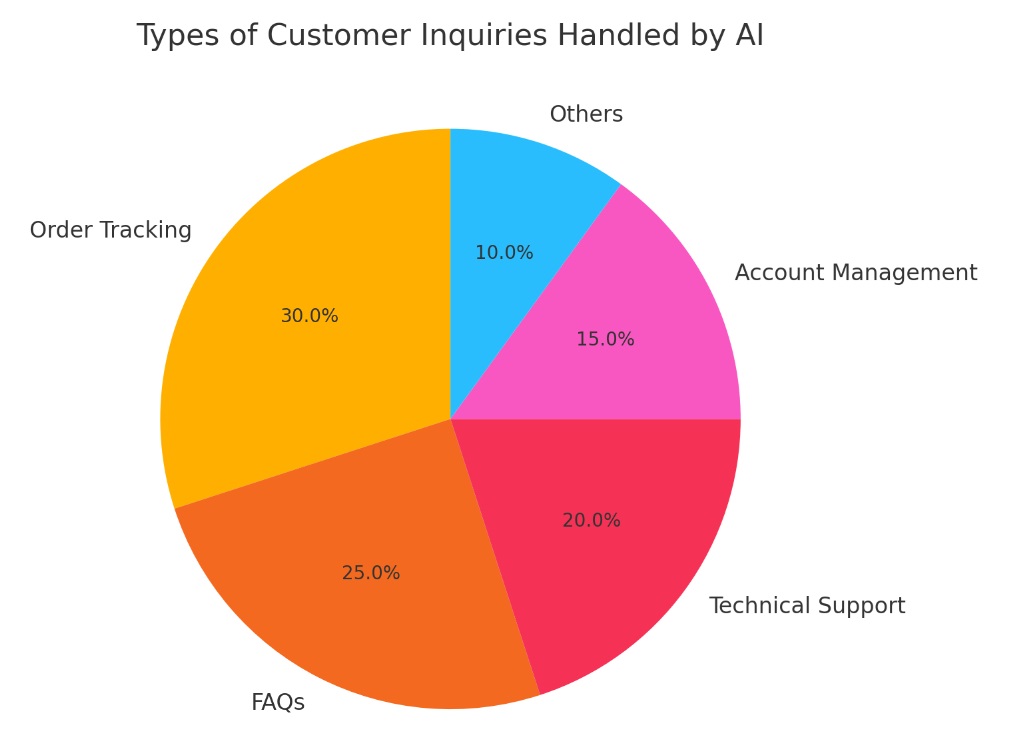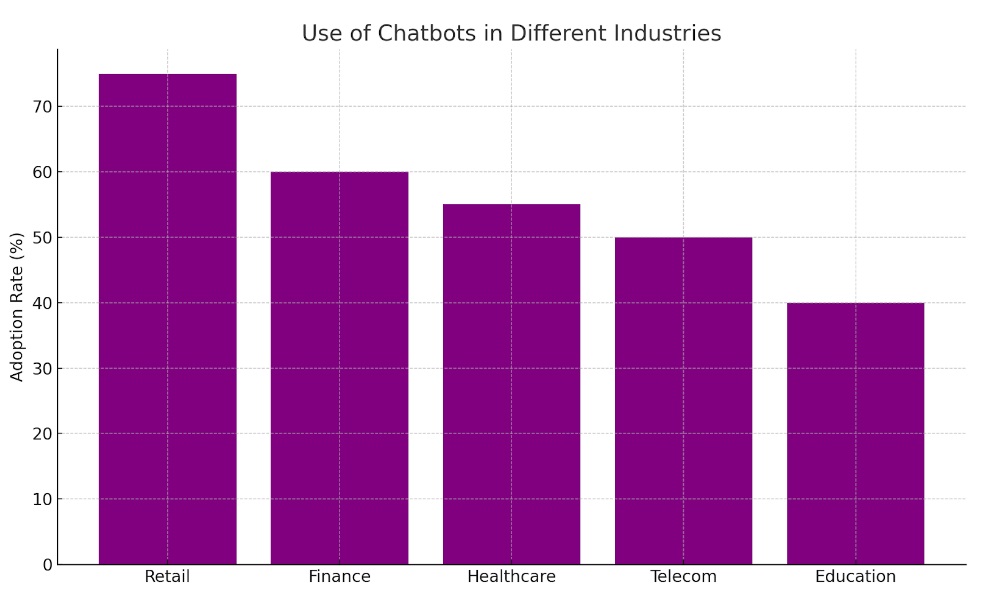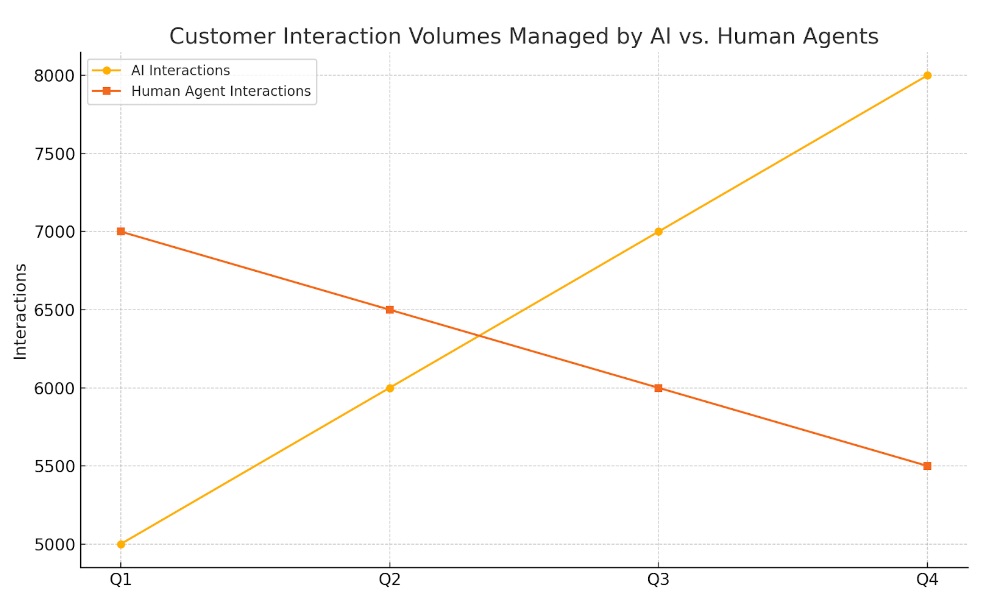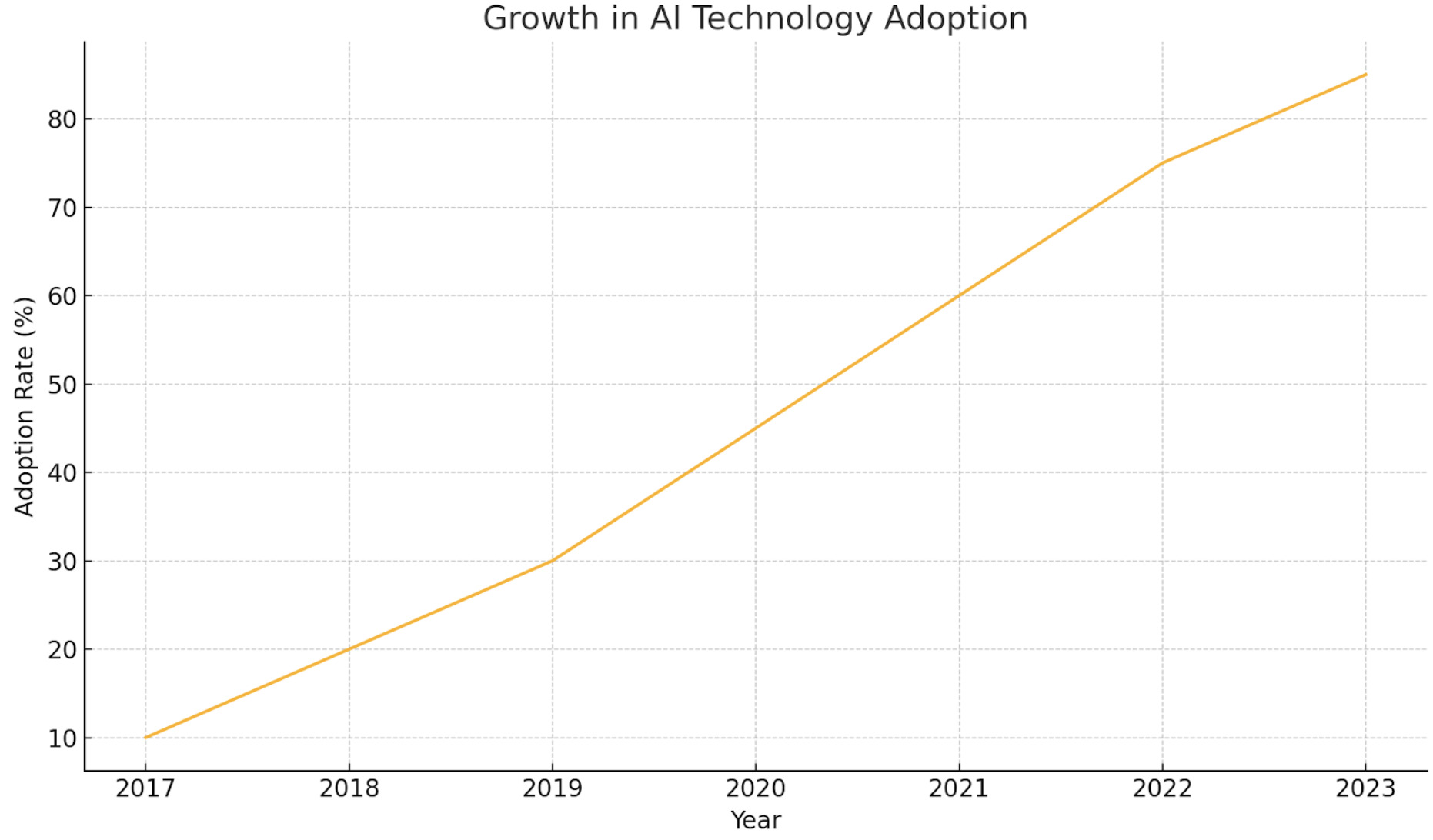In today’s rapidly evolving industry trends, businesses are increasingly turning to Artificial Intelligence (AI) to revolutionize customer support and service automation.
Recent AI statistics underscore this transformative shift: the retail sector leads with a remarkable 72% adoption rate of AI technologies, setting a progressive benchmark across industries.
Moreover, 80% of retail executives anticipate further AI automation by 2025, signaling a pivotal moment in how businesses enhance operational efficiency and customer satisfaction.
Let us explore the profound impact of these latest AI statistics on reshaping customer interactions and driving business success.
The Evolution of Customer Support
Before we jump into the nitty-gritty of AI, let’s take a moment to appreciate how far customer support has come. Remember the days of endless hold music and repeating your issue to multiple agents? Yeah, not fun. Traditional customer service models often left customers frustrated and companies struggling to keep up.
Enter AI. With advancements in technology, customer support has evolved into a much more efficient and satisfying experience. From chatbots to automated emails, AI is transforming how businesses interact with their customers.

Chatbots: The Frontline Heroes
One of the most visible and impactful uses of AI in customer support is chatbots. These digital assistants are now commonplace on websites, ready to help you 24/7. But they’re not just there for show. Modern chatbots can handle a wide range of tasks, from answering frequently asked questions to processing orders.

Benefits of Chatbots
- 24/7 Availability: Unlike human agents, chatbots don’t need sleep. They can assist customers at any hour, which is a huge plus for global businesses.
- Instant Responses: Chatbots provide immediate answers, reducing wait times and improving customer satisfaction.
- Cost-Effective: By handling routine inquiries, chatbots free up human agents to tackle more complex issues, saving companies money.
Take a look at companies like Sprinklr and Zendesk that have successfully integrated chatbots into their customer service strategies. They report higher customer satisfaction and lower operational costs, proving that chatbots are more than just a trend.
Natural Language Processing: Making Conversations Flow
Natural Language Processing (NLP) is another AI technology that’s revolutionizing customer support. NLP allows machines to understand and respond to human language in a way that feels natural. This technology powers not only chatbots but also voice assistants like Siri and Alexa.
How NLP Improves Customer Support
- Contextual Understanding: NLP enables systems to understand the context of a conversation, making interactions more relevant and helpful.
- Sentiment Analysis: By analyzing the tone of a customer’s message, NLP can gauge their mood and prioritize urgent or sensitive issues.
- Multilingual Support: NLP can process multiple languages, breaking down language barriers and expanding a company’s global reach.
With NLP, AI systems can provide more personalized and effective support. This means that even if you’re chatting with a bot, the conversation feels more human and less like talking to a machine.
AI-Powered Data Insights: The Hidden Superpower
One of the lesser-known but incredibly powerful impacts of AI on customer support is its ability to analyze vast amounts of data. AI can sift through customer interactions to identify trends, predict issues before they arise, and suggest improvements.
Key Data Insights Provided by AI
- Customer Behavior Analysis: AI can track and analyze customer behavior, helping businesses understand what their customers want and need.
- Predictive Analytics: By analyzing past interactions, AI can predict future customer issues and prepare solutions in advance.
- Performance Metrics: AI provides detailed reports on customer support performance, highlighting areas for improvement and celebrating successes.
Companies using AI for data analysis are seeing significant improvements in their customer support strategies. For example, Salesforce uses AI to offer personalized recommendations and streamline support processes, resulting in happier customers and more efficient operations.
Enhancing Human Agents with AI
AI isn’t just about replacing human agents; it’s also about enhancing their capabilities. AI tools can assist human agents by providing them with relevant information and suggestions in real-time, making their job easier and more efficient.

How AI Enhances Human Agents
- Instant Information Retrieval: AI can quickly pull up relevant customer information, allowing agents to provide faster and more accurate responses.
- Automated Follow-Ups: AI can schedule and send follow-up emails, ensuring no customer query is forgotten.
- Training and Development: AI can analyze agent performance and provide personalized training recommendations.
By working alongside AI, human agents can focus on what they do best: building relationships and solving complex issues. This partnership between humans and machines creates a more effective and satisfying customer support experience.
Overcoming Challenges in AI Integration
While AI offers numerous benefits, integrating it into customer support systems isn’t without challenges. Businesses often face hurdles such as high implementation costs, data privacy concerns, and the need for ongoing maintenance and updates.
Common Challenges
- Cost of Implementation: Setting up AI systems can be expensive, especially for small businesses.
- Data Privacy: Ensuring customer data is secure and compliant with regulations is a major concern.
- Continuous Improvement: AI systems require regular updates and maintenance to stay effective and relevant.
Despite these challenges, the long-term benefits of AI in customer support make it a worthwhile investment. Companies that successfully integrate AI into their support systems often see a significant return on investment through increased efficiency and customer satisfaction.
Real-World Success Stories
Let’s look at some real-world examples of companies that have successfully integrated AI into their customer support strategies.
Case Study: H&M
H&M uses AI-powered chatbots to handle customer inquiries on their website and mobile app. These chatbots can assist with a range of issues, from tracking orders to providing fashion advice. The result? Faster response times and higher customer satisfaction.
Case Study: American Express
American Express employs AI to analyze customer interactions and provide personalized support. By predicting customer needs and offering tailored solutions, they’ve managed to enhance the overall customer experience and build stronger relationships with their clients.
Case Study: Sephora
Sephora’s AI-driven customer support includes a chatbot that offers personalized beauty advice and product recommendations. This not only improves the shopping experience but also frees up human agents to focus on more complex customer inquiries.
The Future of AI in Customer Support
The future of AI in customer support looks incredibly promising. As technology continues to advance, we can expect even more sophisticated AI tools that offer deeper personalization, better understanding, and more proactive support.

What to Expect
- Increased Personalization: AI will continue to improve in understanding individual customer preferences and providing highly personalized support.
- Proactive Support: Future AI systems will be able to anticipate customer needs and offer solutions before issues arise.
- Integration with Other Technologies: AI will increasingly integrate with other emerging technologies like augmented reality (AR) and virtual reality (VR), creating even more engaging customer support experiences.
Conclusion
AI is undoubtedly transforming the landscape of customer support and service automation. From chatbots and NLP to data insights and enhanced human agents, the benefits of AI are vast and varied.
While there are challenges to overcome, the long-term advantages make it a game-changer for businesses of all sizes.
If you’re looking to stay ahead in the competitive world of business, embracing AI in your customer support strategy is a smart move.



































